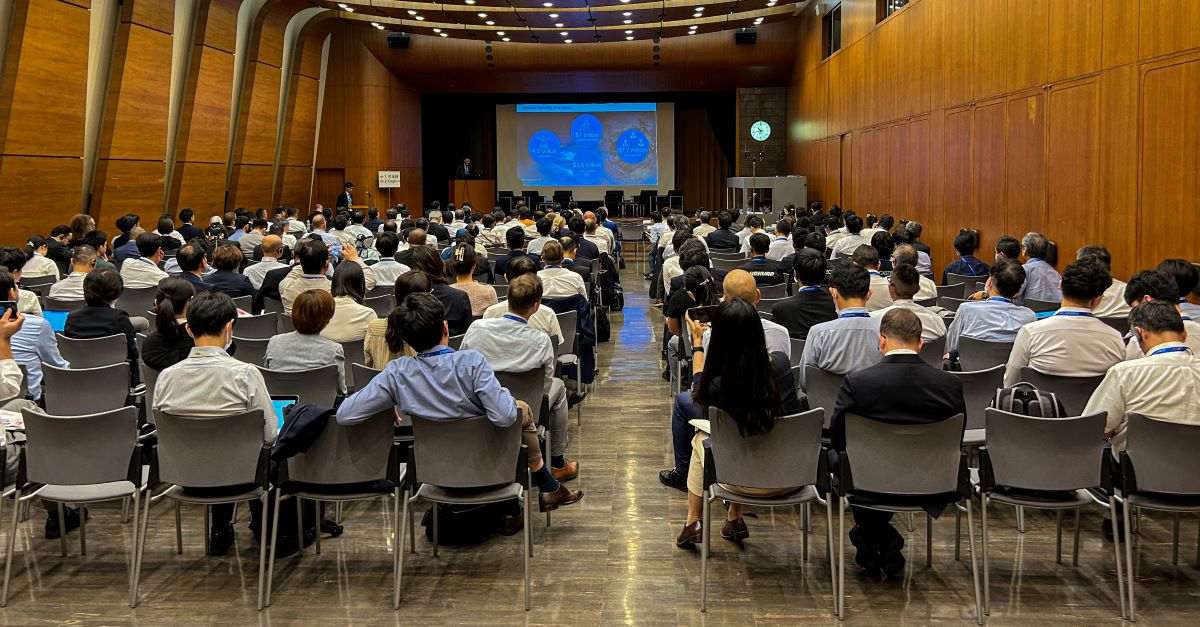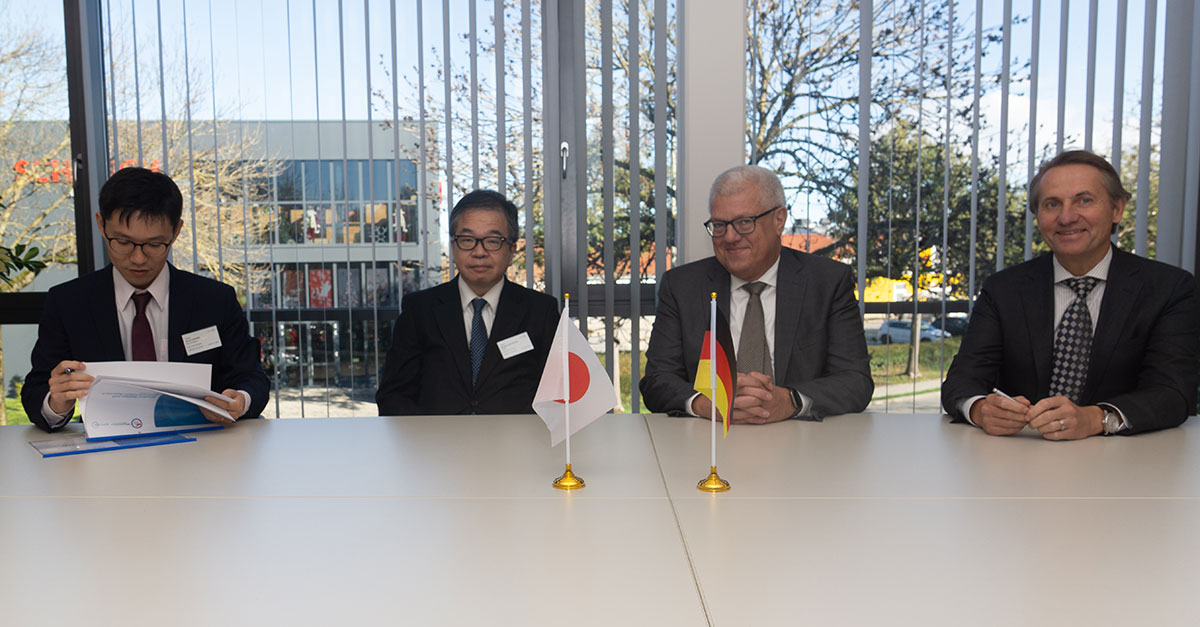How German aerospace SMEs remain competitive in spite of structural changes in the supply chain
![]()
At the invitation of SPACE Deutschland, over 60 representatives of German aerospace SMEs (small and medium-sized aerospace enterprises) took part in the 3rd SPACE Annual Network Meeting at Airbus Helicopters in Donauwörth, Germany, on 25/26.04.2016. Incidentally, SPACE stands for “Supply chain Progress towards Aeronautical Community Excellence”. As a sector association for the aerospace industry and its supply chain, SPACE aims to improve the industrial performance of its members.
On the day before the actual Annual Network Meeting, a tour of the Airbus Helicopters plant provided insights into the latest developments in helicopter production. The door production for Airbus is particularly interesting. Airbus Helicopters produces around 70% of all doors for Airbus’ commercial airliners from the A320 range, the A330/A340 and the A350 range which is currently in ramp-up to the A380. It was fascinating to discover the importance of saving weight from a commercial perspective too. For example, a 1 kg reduction in weight means savings of up to €600,000 over a 30-year period.
The actual SPACE event began on 26 April with the welcome address from the SPACE Deutschland Executive Board with Norbert Schroeder, Jochen Bucher, Peter Schindler and Werner von Anhalt. It immediately became clear that the German aerospace supply industry must help to shape the unstoppable structural changes in the supply chain if it is to remain competitive in the long term. As part of the “Supply Chain Excellence” initiative together with the BDLI and its regional aerospace clusters such as BavAiria, SPACE has defined six topic areas for safeguarding the competitiveness of German aerospace SMEs in the long term:
- Business model
- Internationalization
- Partnerships
- SPACE industrial performance
- Multi-tier sales and operations planning
- Financing and contracts
As host Werner von Anhalt who is responsible for the supply chain and quality management at Airbus Helicopters reported, the company employs almost 23,000 people worldwide, generated a turnover of around €6.5 billion in 2014 and looks after over 3,000 operators in 154 countries. In spite of difficult market conditions, particularly in the “oil and gas” sector, Airbus Helicopters has managed to increase its market share recently and is the world market leader in the EC135/145 segment for example.
In his presentation regarding supply chain and quality management at Airbus Helicopters, Werner von Anhalt described the positive influence of the SQIP (Supply Chain Quality Improvement Process) when it comes to the availability of parts etc., using key figures such as OTD1 and OTQ1. The SQIP functions like a “driving belt” here. One highly interesting aspect was that the two main Airbus Helicopters sites in Marignane and Donauwörth work closely together in order to balance out fluctuations in demand across both sites.
Digitalization of the Supply Chain
The second expert presentation looked at the digitalization of the supply chain and Industry 4.0 – with SupplyOn’s AirSupply collaboration platform as the first step. In an interactive role play, the author of this article, Arvid Holzwarth, Consulting Manager at SupplyOn, and Marie-Noelle Lepers, AirSupply Product Manager at the BoostAeroSpace industry consortium, worked out which day-to-day worries aerospace suppliers face in Germany when it comes to operative procurement. They looked at how the AirSupply industry solution supports suppliers in their daily business and can help them to take the first steps towards the digitalization of the supply chain and Industry 4.0.
After all, SupplyOn is a vertical industrial network with over 20,000 business partners and SupplyOn’s “AirSupply” sector solution features efficient supplier collaboration including an early-warning system for critical supply situations, high security standards, user-friendliness and the future-proof design of an industry solution. The industry consortium BoostAeroSpace acts as a governance organization for AirSupply.
At his former place of work, management consultant Bert Stegkemper, previously COO and General Manager Germany at Airbus Helicopters, provided insights into the basic principles behind sales and operations planning (S&OP) where it is essential to balance demand and delivery capabilities. In addition to the official content of the contracts between customers and suppliers, he also referred to the implicitly expected scope of performance which helps avoid having to clarify the rights and obligations in a supplier contract in the event of disputes.
He compared the risks of an inadequately managed S&OP process with global warming where initially no action is taken because the problems develop slowly and the threat is only acknowledged when it is already too late. A multi-tier S&OP requires regular communication and interaction in order to optimize the supply chain end to end. He encouraged the suppliers present to bring in their own ideas as to how competitiveness can be permanently increased and in this context referred to a survey which is currently under way as part of the Supply Chain Excellence initiative for the aerospace supply chain.
Benno Speer from the Forum Luft- und Raumfahrt first talked about the importance of aerospace in Baden-Württemberg before he looked at the significance of partnerships between aerospace SMEs in order to ensure their own competitiveness in the long term. He gave insights into how important it is to find the right form of partnership and the right partners. He said: “The pressure to cooperate is there – we have to do it!”
Smart Supply Chain
The presentation on Industry 4.0 in practice from the point of view of a key player in the German aerospace supply industry was eagerly awaited. Fabian Gieschen, Supply Chain & Quality Operation Manager at Premium Aerotec (PAG) presented PAG’s Industry 4.0 approach with six sustainable “smart” building blocks for an integrated Industry 4.0 approach: smart product, smart development, smart factory, smart supply chain, smart people and smart big data.
The first use cases based on a 90-day period are now being developed to provide first learning effects. As an example of a smart supply chain, he mentioned the use case for “Quality Track’n Trace” in order to record temperature and vibration-dependent measurement data when transporting materials from the supplier to the customer, make these data accessible via a central portal and evaluate them.
All in all, SPACE succeeded in giving important signals as to how German aerospace SMEs can remain competitive in spite of the structural changes in the supply chain. After all, the future has already begun – and German aerospace SMEs have an important role to play in shaping it.



